With research interests in nanomaterials and nanoelectronics, environmental sustainability, biological networks, and geomechanics, this year’s incoming faculty members exhibit a wide range of engineering expertise.
Joshua Apte
(Future) Assistant Professor
Department of Civil, Architectural, and Environmental Engineering
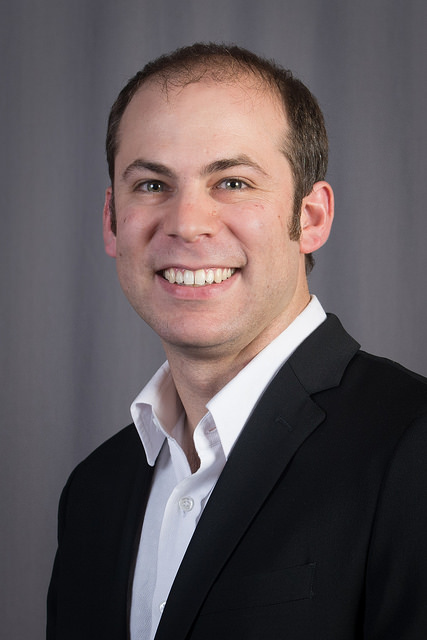
Joshua Apte, assistant professor in the Cockrell School of Engineering’s Department of Civil, Architectural, and Environmental Engineering
Joshua Apte will join the Cockrell School in spring 2015 as an assistant professor in the Department of Civil, Architectural, and Environmental Engineering. Apte will come from Lawrence Berkeley National Lab, where he is an ITRI-Rosenfeld Postdoctoral Fellow.
His research interests include sustainability in the built environment, methods for air pollution exposure assessment, intake fraction, atmospheric aerosols, and environmental issues in low-income countries.
Apte received his bachelor’s degree in environmental science from Brown University and his master’s degree from the University of California, Berkeley. He earned his doctorate in energy and resources at UC Berkeley.
Among his fellowships and awards were the Philomathia Graduate Fellowship in the Environmental Sciences and the Chang-Lin Tien Graduate Fellowship in the Environmental Sciences from UC Berkeley. He also received the Fulbright-Nehru Fellowship to India from the U.S. Department of State in 2010.
What attracted you to The University of Texas at Austin?
I’m excited to join the UT Austin community because of its vibrancy: it has world-class students and faculty in engineering and in so many other disciplines. Besides, UT Austin is in Austin, which is a hip and exciting city.
What do you enjoy most about engineering or your specific field?
At the broadest level, I am inspired to do what I do because I believe that our field’s work can translate fundamental discoveries into actionable ideas for a more environmentally sustainable society. More immediately, I really enjoy how our theoretical understanding of phenomena becomes tangible through fieldwork (e.g., air pollution measurement) and data analysis. There’s nothing more satisfying than those “aha!” moments when everything just clicks.
What are your favorite hobbies?
I enjoy cycling, hiking, playing music (guitar and banjo), and learning new languages.
Marcelo Behar
Assistant Professor
Department of Biomedical Engineering
Marcelo Behar joins the Cockrell School from the University of California, San Diego, where he was a postdoctoral research fellow in the Department of Chemistry and Biochemistry.
His research is focused on understanding the functional principles underlying how biological networks collect, process, and use various types of information available to them. He expects his findings to enable therapeutic strategies to control cellular functions impacted by disease.
Behar has a master’s degree and a Ph.D. in physics from the University of North Carolina at Chapel Hill. He earned his bachelor’s degree from the Universidad de Buenos Aires in Argentina.
What attracted you to UT Austin?
Talented students, collegial faculty, a vibrant research community, and the vibe of the city of Austin.
What do you enjoy most about engineering or your specific field?
Bioengineering is intrinsically linked to life. We can’t forget that the final product of our research has to interface with living matter — whether that’s a cell, a tissue, or a patient. This sets a new level of requirements that forces us to look at life from an engineering perspective. Successful engineering, in any area, cannot occur without a deep understanding of the materials involved. The key material for bioengineering is life, and the more the area advances, the more we learn about ourselves.
What are your favorite hobbies?
Sailing and kayaking. My wife and I were delighted to learn we can do both here in Austin.
Maura Borrego
Associate Professor
Department of Mechanical Engineering
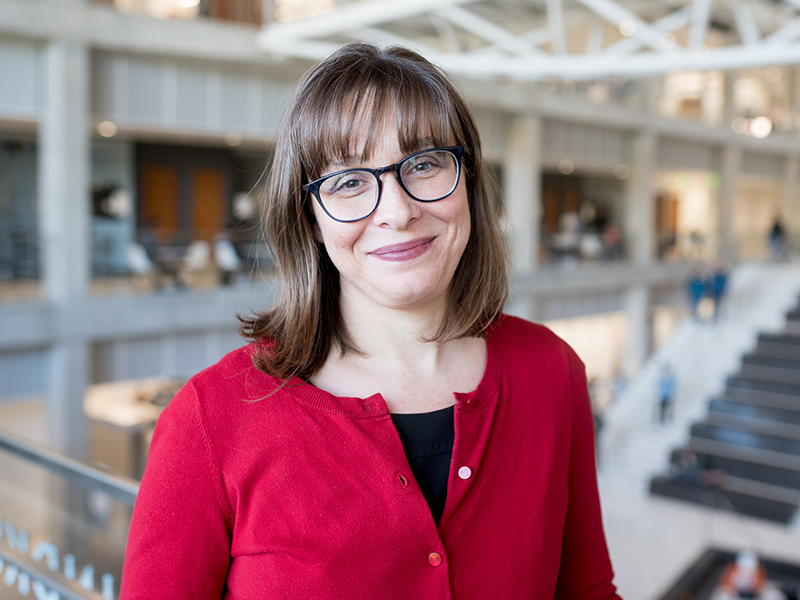
Maura Borrego, associate professor in the Cockrell School of Engineering’s Department of Mechanical Engineering
Maura Borrego joined the Cockrell School in August. She was most recently the associate dean and director of interdisciplinary programs at Virginia Tech. Before that, she served as a program director for the National Science Foundation.
Borrego’s research interests include: engineering education at the undergraduate and graduate levels; how engineering faculty make decisions about using active learning; Hispanic engineering student transfer from two-year to four-year institutions; and teams and interdisciplinary collaboration.
She received her master’s degree and doctorate in materials science and engineering from Stanford University. Borrego earned her bachelor’s degree in materials science and engineering from the University of Wisconsin, Madison. In 2008, she received the prestigious Presidential Early Career Award for Scientists and Engineers.
What attracted you to UT Austin?
So many productive, accomplished colleagues who also want to see me succeed.
What do you enjoy most about engineering or your specific field?
I get to help engineering students have a better experience in college than I remember having.
What are your favorite hobbies?
Swimming at Gregory Gym and trying tacos at restaurants all over Austin.
Christian Claudel
(Future) Assistant Professor
Department of Civil, Architectural, and Environmental Engineering
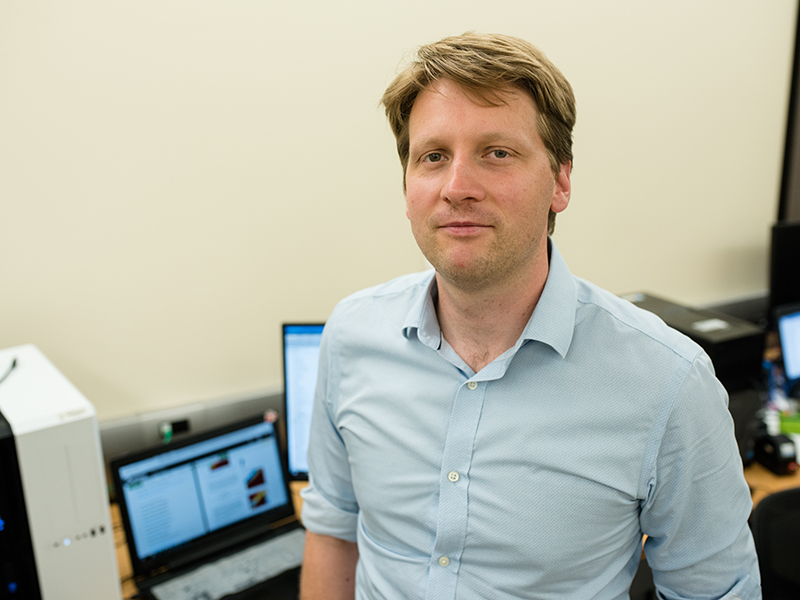
Christian Claudel, assistant professor in the Cockrell School of Engineering’s Department of Civil, Architectural, and Environmental Engineering
Christian Claudel will join the Cockrell School in spring 2015.
For the past four years, Claudel has been an assistant professor of electrical engineering at the King Abdullah University of Science and Technology in Saudi Arabia.
His research interests include control and estimation of distributed parameter systems, transportation systems, wireless sensor networks, and unmanned aerial vehicles.
He received his doctorate in electrical engineering and computer science from the University of California, Berkeley, and a master’s degree in plasma physics from École Normale Supérieure de Lyon, France. In 2010, Claudel received the Leon Chua Award from UC Berkeley for outstanding achievement in the area of nonlinear sciences.
What attracted you to UT Austin?
I was attracted to UT Austin for the unique mix of expertise in transportation, sensing systems, and hydrology, which are related to my research interests.
What do you enjoy most about engineering or your specific field?
I am a systems engineer, and what I enjoy the most about systems engineering is the possibility of addressing fundamental societal needs by assembling components and designing software in a way that was not thought of before. I like the fact that these solutions can be developed in the very short term, and that we have strong connections with industry.
What are your favorite hobbies?
Outside of work, I enjoy hiking, reading, and strategy games.
Nedialko Dimitrov
Assistant Professor
Department of Mechanical Engineering
Nedialko Dimitrov joins the Cockrell School from the Naval Postgraduate School, where he was an assistant professor in operations research and conducted research in network modeling and optimization, with applications in Department of Defense activities, national security, and disease control.
From 2008 to 2010, he was a postdoctoral fellow in operations research at UT Austin. Dimitrov has a doctorate in computer science from UT Austin, and he earned his bachelor’s degree in mathematics and computer science from the University of Michigan.
What attracted you to UT Austin?
UT Austin is one of the best educational institutions in the world, in many fields, including engineering. This means that there are brilliant faculty in essentially every department, which makes for great research and learning opportunities.
What do you enjoy most about engineering or your specific field?
I really love showing people that math is useful. Most people think of their high school trigonometry classes and have the reaction, “Why in the heck would anyone do this”? But really, it permeates essentially every technology we use and helps us make day-to-day decisions. It is really fun to demystify how things work for people.
What are your favorite hobbies?
I usually exercise to de-stress. Typically, I run, swim, or hike. I’ve also been trying to get better at capoeira. It’s fun to do an activity that occupies both your mind and your body to distract you from other stresses.
John Foster
Assistant Professor
Department of Petroleum and Geosystems Engineering
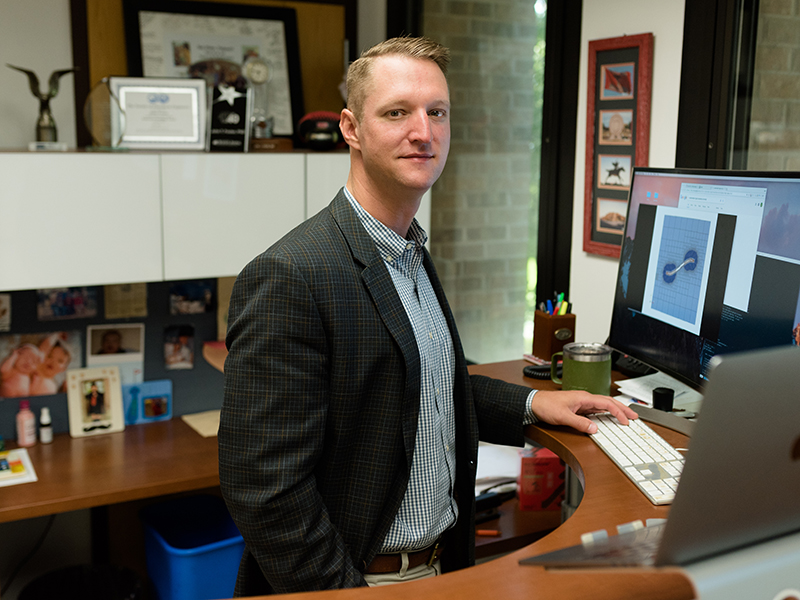
John Foster, assistant professor in the Cockrell School of Engineering’s Department of Petroleum and Geosystems Engineering
John T. Foster joins the Cockrell School from The University of Texas at San Antonio, where he was a faculty member in the mechanical engineering department.
Before that, he was a senior member of the Technical Staff at Sandia National Laboratories, where he worked for seven years.
During his nearly 10-year research career, he has been involved in many projects ranging from full-scale projectile penetration field tests to laboratory experiments using Kolsky bars to modeling and simulation efforts using some of the world’s largest computers. His current research involves experimental and computational geomechanics and multi-scale modeling with applications within the oil and gas industry for well completions, lost circulation, hydraulic fracturing, and anomalous flow in porous media.
He received his bachelor’s and master’s degrees in mechanical engineering from Texas Tech University and his Ph.D. from Purdue University.
What attracted you to UT Austin?
Two years ago, Cockrell School professor Mukul Sharma and I wrote a Department of Energy proposal, which was funded in 2012. During these collaborative visits, I came to know the high quality of students that the Cockrell School’s Petroleum and Geosystems Engineering department was attracting, as well as the many interesting mechanics problems that the petroleum industry presents. The access to excellent students, collaborators, and interesting problems of high societal impact led me to pursue an opportunity to join the faculty here.
What do you enjoy most about engineering or your specific field?
From a technical standpoint, I enjoy working on problems with high scientific merit that advance solutions that will have a benefit to society. But the best part of life as an academic is the individual interactions and relationships that I get to build with students. Nothing is more rewarding than seeing students grow and mature into independent thinkers and productive researchers.
What are your favorite hobbies?
As a husband and father of two young children, most of my time away from work involves family. I enjoy spending time at the lake with family and friends, and traveling. I am also a private pilot and hope to be able to spend more time flying in the future.
Aida Khajavirad
Assistant Professor
Department of Mechanical Engineering
Aida Khajavirad joined the Cockrell School as an assistant professor of operations research and industrial engineering in the Department of Mechanical Engineering. Before coming to the Cockrell School, Aida worked as a research scientist in the mathematical programming group at IBM T.J. Watson Research Center for two years.
Khajavirad’s main research interest lies at the interface of convex analysis and nonconvex optimization. Her publications have appeared in journals such as Mathematical Programming Series A, Mathematical Programming Computation, and Journal of Global Optimization. Her work is focused on both theoretical and algorithmic aspects of global optimization of mixed-integer nonlinear optimization problems.
She completed her Ph.D. in mechanical engineering at Carnegie Mellon University in 2011, where she worked with Professor Nick Sahinidis at the Center for Advanced Process Decision-making.
What attracted you to UT Austin?
UT Austin has been consistently ranked among the top 10 engineering schools. The Operations Research Program, which I am affiliated with, has a very friendly environment and attracts top students. In addition, I like the city of Austin.
What do you enjoy most about engineering or your specific field?
I do mathematical optimization; I enjoy the process of modeling an engineering problem as a mathematical program, solving it rigorously, and interpreting the mathematical solution in the engineering context.
What are your favorite hobbies?
I love running, hiking, and swimming. I also greatly enjoy traveling and reading history books.
Hyun Jung Kim
(Future) Assistant Professor
Department of Biomedical Engineering
Hyun Jung Kim will join the Cockrell School in spring 2015. He is currently a Technology Development Fellow at Harvard University’s Wyss Institute for Biologically Inspired Engineering.
Among his research highlights, Kim developed a biomimetic human gut-on-a-chip, which mimics the physiology of normal intestines. His ongoing projects include a human intestinal disease model, an in vitro countermeasure for lethal radiation exposure, and human-on-chips for multi-organ integration.
Kim received his master’s degree and doctorate in biotechnology at Yonsei University in Seoul, Korea. He worked as a postdoctoral fellow at Harvard from 2009 to 2012.
What attracted you to UT Austin?
I know that there are great professors, students, and colleagues at UT Austin, and there is also enormous support for research and faculty. The fabulous environment and numerous opportunities for collaboration were major draws.
What do you enjoy most about engineering or your specific field?
I have developed a human intestine model using memory-stick-size microchip technology. Since my research background covers microbiology, microfluidics, and tissue engineering, I have truly enjoyed emulating the pathophysiology of human intestines using the principle of biologically inspired engineering for clinical and pharmaceutical applications.
What are your favorite hobbies?
I am good at playing basketball. But I would like to try to learn tennis and swimming here to get more regular exercise on a daily basis. I love hanging out with my family and going to museums and music halls.
Delia Milliron
Associate Professor
McKetta Department of Chemical Engineering
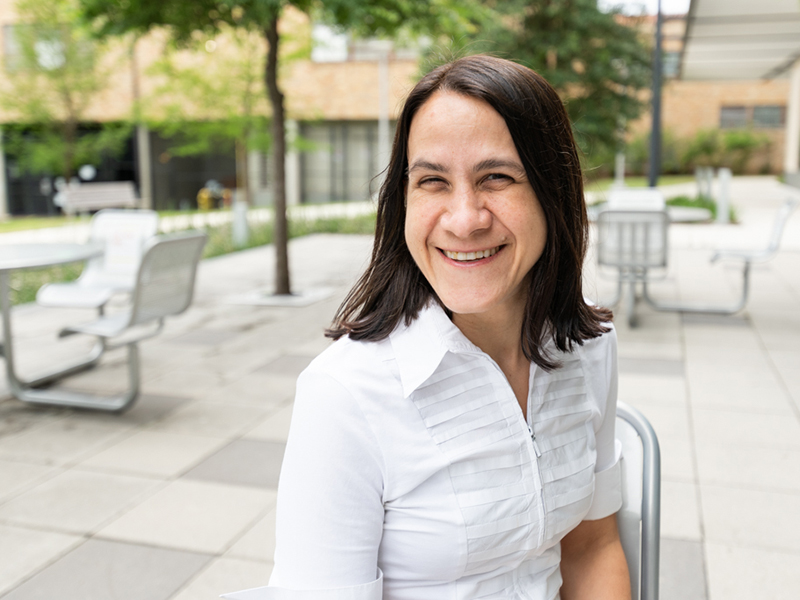
Delia Milliron, associate professor in the Cockrell School of Engineering’s Department of Chemical Engineering
Delia J. Milliron joins the Cockrell School as an associate professor and Fellow of the Henry Beckman Professorship.
Before joining the Cockrell School, she was a member of the research staff at the Molecular Foundry, Lawrence Berkeley National Lab, where she served as director of the Inorganic Nanostructures Facility and later as the deputy director.
Her research is motivated by the potential for nanomaterials to introduce new functionality to and reduce the manufacturing costs of energy technologies. Her group’s activities span from the fundamental chemistry and assembly pathways of nanomaterials to device integration and characterization.
She received her doctorate in chemistry from the University of California, Berkeley, in 2004. Recent awards include a Department of Energy Early Career Research award, an R&D 100 Award, and an MDV Innovators Award.
What attracted you to UT Austin?
The people in our community — undergrads, grad students, and faculty colleagues — make UT a compelling and exciting intellectual environment. I was drawn to the opportunity to collaborate and the opportunity to challenge myself, my group, and our research.
What do you enjoy most about engineering or your specific field?
In nanostructured materials, the specific arrangement of matter on atomic and molecular-length scales impacts real, observable properties in surprising and complex ways. This connection between the hidden microscopic world and functionality we can use inspires me.
What are your favorite hobbies?
I love to be immersed in nature, whether hiking, snowboarding, or scuba diving.
Chris Rylander
Associate Professor
Department of Mechanical Engineering
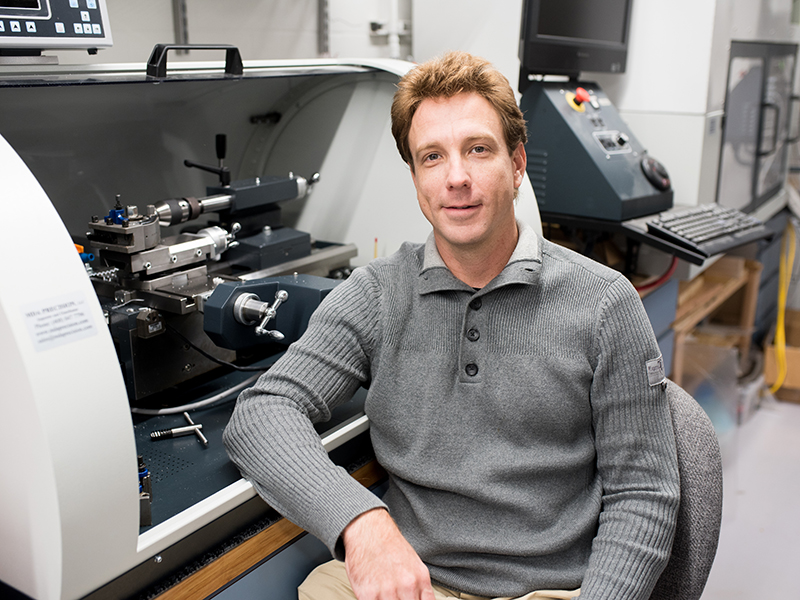
Chris Rylander, associate professor in the Cockrell School of Engineering’s Department of Mechanical Engineering
Chris Rylander joins the Cockrell School as an associate professor and principal investigator of the Medical Devices Laboratory, with research focused on solving health care-related problems using mechanical engineering design and manufacturing techniques.
He was most recently an associate professor in the mechanical engineering department at Virginia Tech.
Rylander’s primary technical area is manufacturing and design, but his research overlaps into the areas of biomechanical engineering and thermal/fluid systems. He is the chair of the Research and Development Committee for the American Society for Lasers in Medicine and Surgery.
He received his doctorate in biomedical engineering and his bachelor’s and master’s degrees in mechanical engineering from UT Austin.
What attracted you to UT Austin?
Austin is home. I grew up here and attended UT Austin. All of my family still lives in Austin. This is especially nice for my young daughter, who can grow up with her grandparents and cousins. Also, of course, the University, with its prestigious and growing engineering school and new medical school, will be a valuable resource to advance my research, teaching, and outreach.
What do you enjoy most about engineering or your specific field?
The innovative aspect — to conceptualize and then reduce to practice a new technique or device that can improve health care is very exciting. Working with very smart colleagues and students is also at the top of my list.
What are your favorite hobbies?
I like to be outdoors with my family whenever possible, fishing, swimming, boating, and hiking.
Marissa Nichole Rylander
Associate Professor
Department of Mechanical Engineering
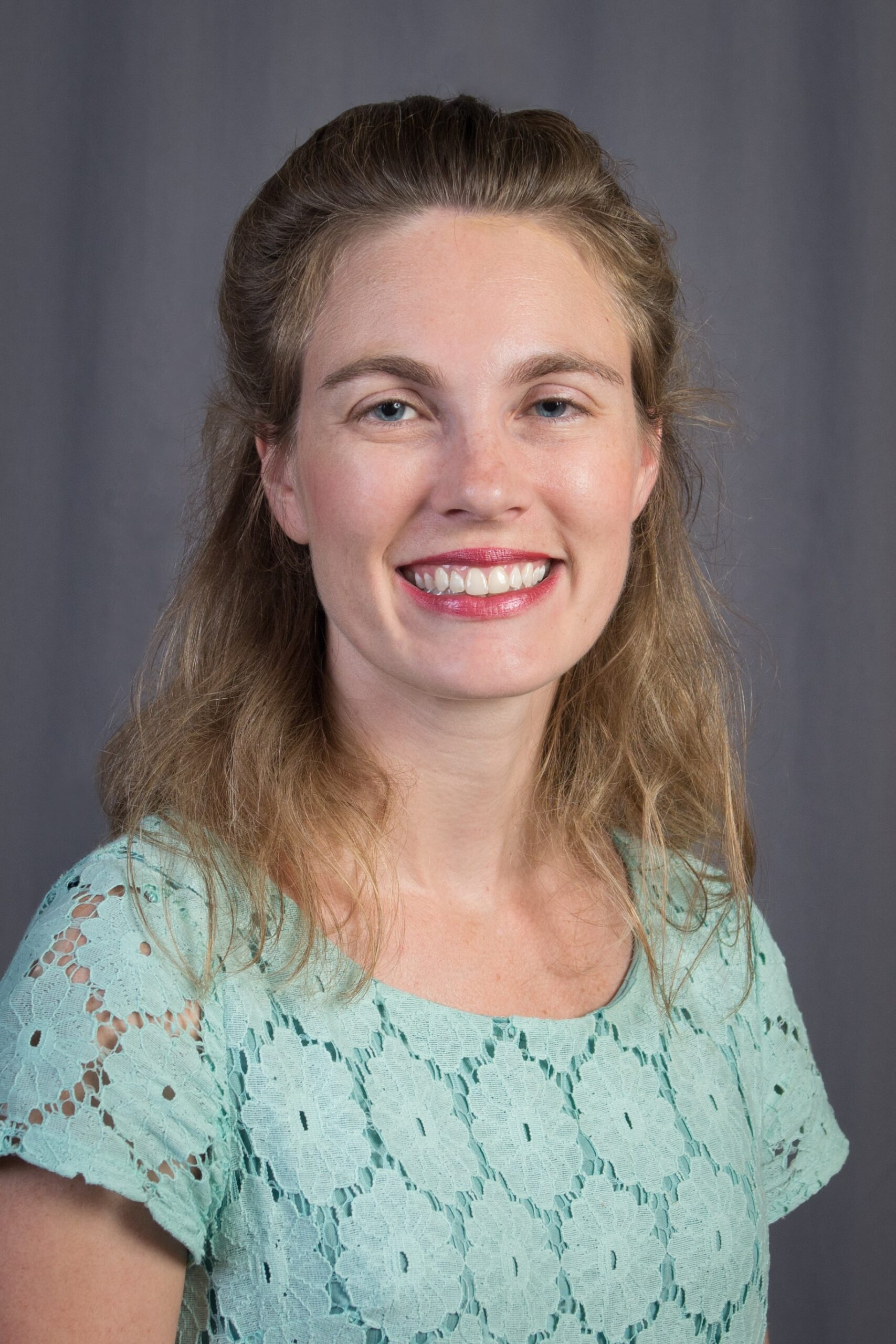
M. Nichole Rylander, associate professor in the Cockrell School of Engineering’s Department of Mechanical Engineering
Marissa Nichole Rylander joins the Cockrell School from Virginia Tech, where she spent eight years as a faculty member in the Department of Mechanical Engineering at the Virginia Tech-Wake Forest University School of Biomedical Engineering and Sciences.
Her research involves multi-disciplinary elements of bioheat transfer, nanomedicine, biomedical optics, tissue regeneration, and cancer engineering. In 2012, she received the Y. C. Fung Young Investigator Award from the American Society of Mechanical Engineers.
Rylander received a National Science Foundation CAREER Award in 2010 for her development of a novel sensing system for characterization of the spatiotemporal tumor response to nanoparticle-mediated photothermal and photochemical therapy. She received her doctorate in biomedical engineering and her bachelor’s and master’s degrees in mechanical engineering from UT Austin.
What attracted you to UT Austin? UT is my alma mater, so I was keenly aware that it is a top-notch engineering school with enormous opportunities for research and teaching.
What do you enjoy most about engineering or your specific field?
I receive great satisfaction in creating technologies that will directly impact human health and ultimately end suffering.
What are your favorite hobbies?
My favorite hobbies are kayaking, biking, and playing with my precious daughter.
Hu “Tiger” Tao
(Future) Assistant Professor
Department of Mechanical Engineering
Hu “Tiger” Tao will join the Cockrell School in spring 2015 from Tufts University, where he is a research assistant professor in the Department of Biomedical Engineering.
His research group will be focused on three areas: low-cost, large-scale micro- and nanomanufacturing using regenerated proteins; bio-inspired and bio-integrated metamaterials for biosensing and tissue engineering; and direct “visualization” of local properties of proteins on the nanoscale using near-field optical microscopy.
Tao received his doctorate in mechanical engineering from Boston University.
What attracted you to UT Austin?
The Cockrell School is regularly ranked one of the top engineering schools across the nation with world-class faculty, top-quality students, and a nice and professional staff team. Great school spirit and amazing sports. Great warm weather most of the year. My wife and I lived in Boston for eight years before coming to Austin.
What do you enjoy most about engineering or your specific field?
Understanding the fundamental operation principles of dauntingly complex living systems and providing applicable health care represents a central challenge in engineering and life sciences. This just fascinates me so much. My research comprehensively integrates the design, fabrication, and validation of dynamic biomaterials and multifunctional microsystems, which hopefully could lead to the development of new experimental methods and the discovery of a new class of “smart” materials and devices with real-world applications.
What are your favorite hobbies?
I enjoy traveling, photographing, listening to (all sorts of) music, watching tennis (I’m a huge Rafael “Rafa” Nadal fan), and spending time with the people I love.
Charles Werth
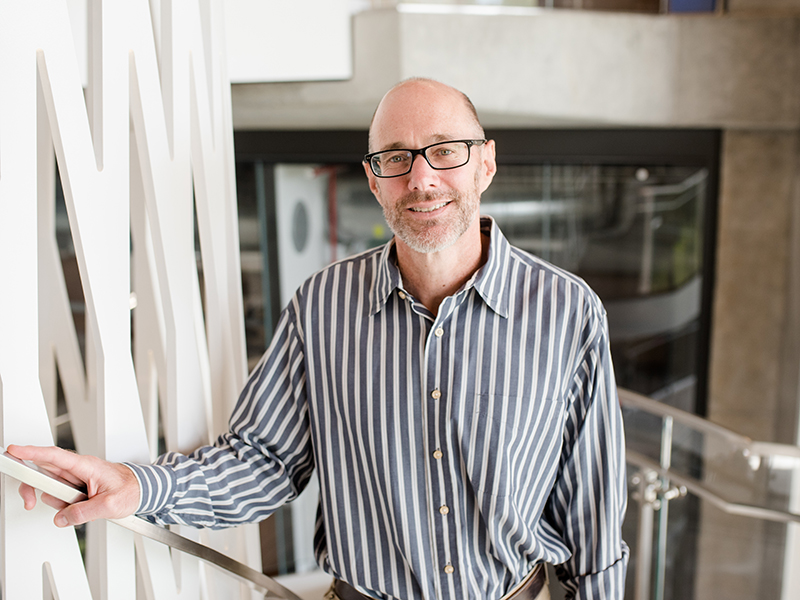
Charles Werth, professor in the Cockrell School of Engineering’s Department of Civil, Architectural, and Environmental Engineering
Professor
Department of Civil, Architectural, and Environmental Engineering
Charles J. Werth joins the Cockrell School as professor and Bettie Margaret Smith Chair of Environmental Health Engineering, after almost 18 years on the faculty at the University of Illinois at Urbana-Champaign.
Werth’s research and teaching focus is on the fate and transport of toxic chemicals in the environment and the development of sustainable technologies for removing these chemicals from drinking water sources. In his research, he develops or uses noninvasive imaging, environmental microfluidics, nanotechnology, spectroscopic analysis, numerical modeling, and lifecycle assessment.
Past recognitions include a Humboldt Research Fellow Award, a National Science Foundation CAREER Award, and a BP Award for Innovation in Undergraduate Instruction.
Werth received a bachelor’s degree in mechanical engineering from Texas A&M University. He earned his master’s degree and doctorate in environmental engineering and a Ph.D. minor in chemistry from Stanford University.
What attracted you to UT Austin?
There are so many things that make UT Austin great. The faculty is outstanding (and friendly), the students are top-notch, and the facilities are superb. The city of Austin is one of the best in the country.
What do you enjoy most about engineering or your specific field?
I enjoy studying the complexity of the natural environment and how humans interact with it in both positive and negative ways. I also enjoy developing new technologies that allow us to use natural and engineered processes to sustainably clean the environment.
What are your favorite hobbies?
I enjoy watching my kids play sports, running, playing tennis with my daughter, and watching action movies.
Chong Xie
Assistant Professor
Department of Biomedical Engineering
Chong Xie joins the Cockrell School from Harvard University, where he recently served as a postdoctoral fellow and worked on nanoelectronic devices and brain probes.
His research is centered on exploring and exploiting nanoelectronics in biomedical applications with an emphasis on brain and neuron science. Xie’s Ph.D. research focused on nanostructured cellular probes.
He received a bachelor’s degree in applied physics from the University of Science and Technology of China and a doctorate in materials science and engineering from Stanford University.
What attracted you to UT Austin?
The Cockrell School of Engineering and the Department of Biomedical Engineering.
What do you enjoy most about engineering or your specific field?
Blurring the distinction between man-made and living systems.
What are your favorite hobbies?
Spending time with my family.
